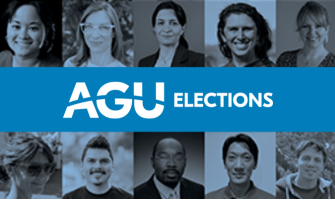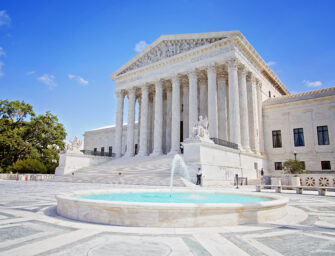Fostering International Collaboration Amid Policy Challenges
By Eric Davidson, President, American Geophysical Union and Lauren Parr, Director of Meetings, American Geophysical Union
Changes in immigration and visa policies instituted by U.S. President Donald Trump are causing confusion and concern across many sectors—and are beginning to have a negative impact on international science collaborations. Many non-American scientists are rightfully concerned that they may be challenged when seeking entry into the United States. They could face barriers even if they have appropriate passports and visas, because of their nationality, religion, ethnicity, name, or recent travels.
Others who are not concerned about their own situations may still wish to show solidarity with their colleagues and may consider a boycott of U.S.-based scientific meetings as a statement of protest. The Trump administration’s proposals and statements disregarding the value of science-based evidence to inform policy—including international policies on climate change, human health, and international security—add to the frustration and concern of many scientists throughout the world.
In the face of this shifting landscape of governmental support for and recognition of scientific contributions to society, AGU is more committed than ever to fostering collaboration and engagement in the global scientific community. We respect the diversity of opinions as well as the legitimate concerns of many travelers. At the same time, we sincerely hope that many of you will choose to join us at the upcoming AGU Fall Meeting in New Orleans from 11 to 15 December to advocate for and celebrate the importance of continued international scientific collaboration.
Toward those ends, we will make every effort to ensure that AGU meetings continue to bring the community together, in person and virtually, to advance Earth and space science. We are taking the following actions to maximize meeting opportunities and minimize travel risks.
- We will provide prospective travelers with regular updates from our communications with officials at the U.S. Transportation Security Administration and other agencies and organizations regarding entry to the United States for the Fall Meeting and other AGU-sponsored meetings.
- For those who feel unsafe traveling, we will increase virtual participation opportunities during and after Fall Meeting.
- For all who can join us for Fall Meeting, we will add programming focused on the importance of international collaborations in science.
We invite you to help us make a strong statement at Fall Meeting through your presence, participation, and voice, either in events that we are planning or in sessions that you might also propose. These sessions will cover topics such as data security and access, scientific integrity and freedom for government-employed scientists, the emerging global field of geohealth, and scientific input regarding implementation of the Paris accords on climate change. It is essential that we have broad geographic and multidisciplinary representation in these sessions. We will report session outcomes beyond the meeting as part of our strategy.
Several other exciting innovations will be introduced at the New Orleans venue this December. Look for updates soon from Denis-Didier Rousseau, the Fall Meeting chair, and from Rick Murnane, chair of the AGU Meetings Committee.
Should you have specific travel or meeting-related concerns, please contact AGU Director of Meetings Lauren Parr at [email protected], or leave a comment below. We also welcome your recommendations about how to ensure that Fall Meeting and other AGU-sponsored meetings can best continue to convene the world’s Earth and space science community.






There are no comments
Add yours